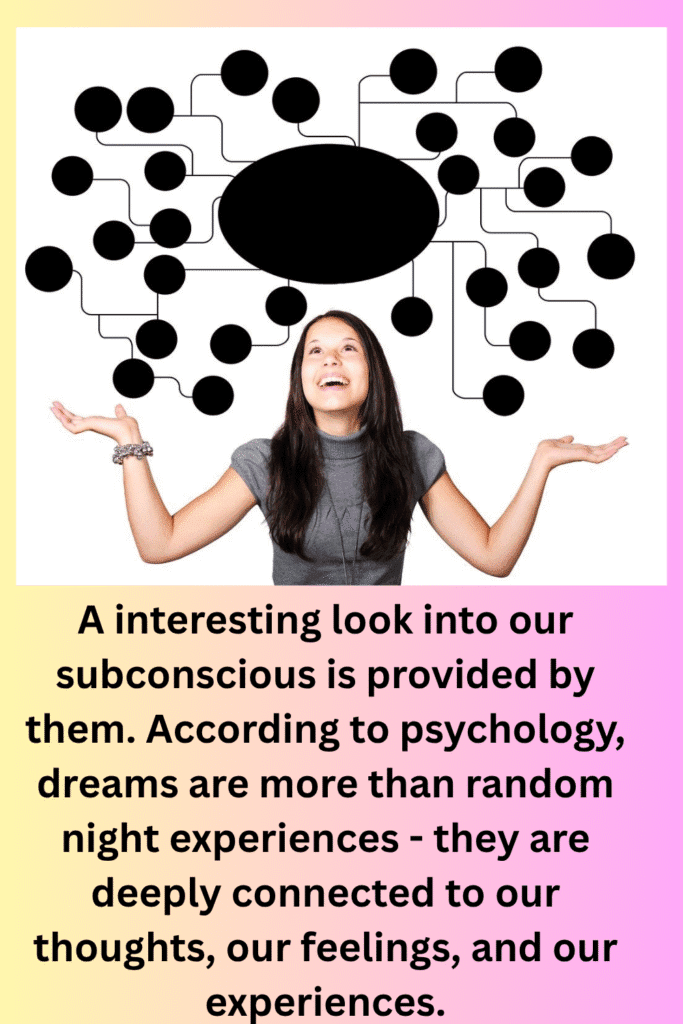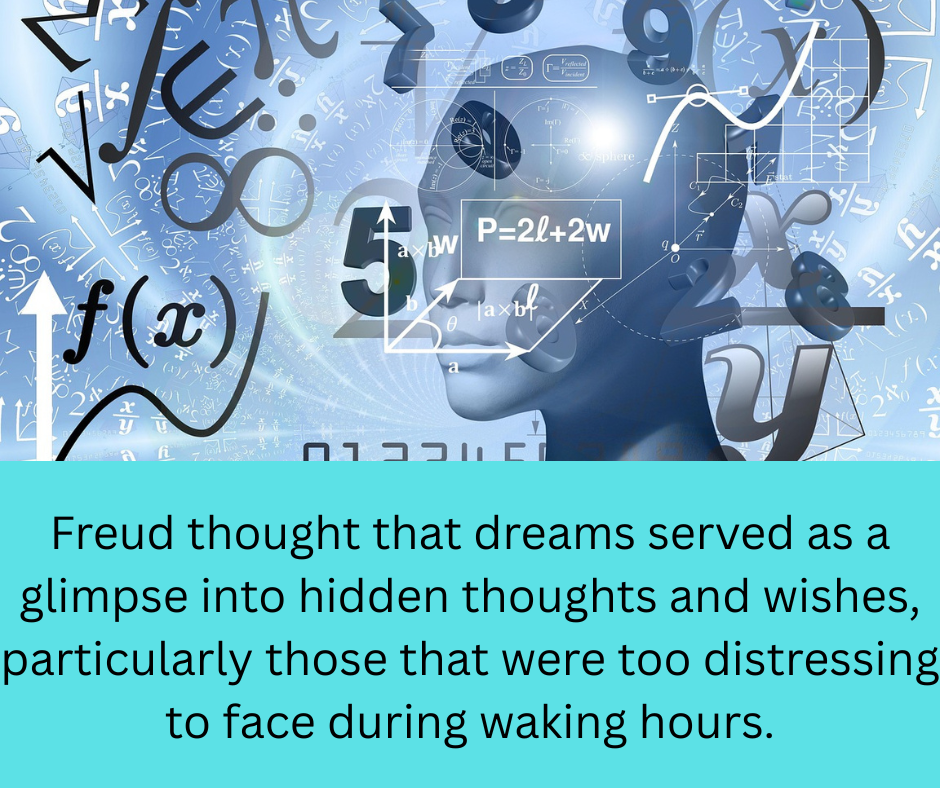Introduction
Dreams reflect your thoughts,Have you ever wondered why your dreams often seem linked to your everyday life?
Perhaps you have noticed that your dreams repeat your worries, desires, or memories.
Question: “Does your dreams reflect your thoughts Are dreams both thrilling and complex? A interesting look into our subconscious is provided by them. According to psychology, dreams are more than random night experiences – they are deeply connected to our thoughts, our feelings, and our experiences.
Consider the relationship between thoughts and dreams, how the mind handles ideas during sleep, and why understanding your dreams can give your ideas for your mental and emotional states.

Table of Contents
What Are Dreams?
Dreams are mental experiences that occur during sleep, especially during the REM (Rapid Eye Movement) phase. They may include vivid images, emotions, thoughts, or scenarios that seem real. Sometimes they are strange, symbolic, or even frightening. dreams reflect your thoughts,Scientists and psychologists agree that dreams are influenced by the brain’s activity, particularly involving memory, emotions, and thought processes.
But are dreams just the brain’s way of cleaning up or do they reflect what we think about?
The Connection between Dreams and Thoughts
Yes, your dreams often reflect your conscious and subconscious thoughts. While dreams may not always be literal, they symbolically represent your mind’s internal world. Here’s how:
- Daily residue: A term used in dream research to describe how day-to-day thoughts, conversations, or events appear in dreams. For instance, if you’re thinking about an exam or a job interview, you might dream about failing a test or being late.
- Emotional thoughts: Emotions play a huge role in dreams. If you’ve been anxious, sad, or happy throughout the day, your dreams are likely to carry the same emotional tone.
- Unresolved thoughts: Dreams often revisit problems or situations you haven’t resolved. If your mind is occupied with a worry, you might dream about it in exaggerated or symbolic ways.
Scientific Studies Supporting Dream-Thought Link
Research in the field of neuroscience and psychology supports the idea that dreams are strongly influenced by our thoughts and mental state.
- A study published in the journal Sleep found that people who were shown emotional videos during the day were more likely to dream about them at night.
- Another study revealed that stressful thoughts during the day often result in stressful dreams or nightmares, especially among individuals with anxiety or PTSD.
- According to Dr. Rosalind Cartwright, a renowned dream researcher, dreams serve as a way to “regulate mood” by processing emotional experiences and thoughts.
These findings suggest that dreaming is an active mental process where your brain organizes, replays, and interprets your waking life thoughts.
Freud and Jung: Dreams as Reflections of the Mind
Two of the most famous psychologists, Sigmund Freud and Carl Jung, had deep theories about dreams reflecting thoughts:
Freud thought that dreams served as a glimpse into hidden thoughts and wishes, particularly those that were too distressing to face during waking hours. Dreams are the “elevated gateway to the subconscious,” according to him.
• In contrast, Jung held the view that dreams conveyed insights from the broader collective unconscious and utilized symbols to communicate unresolved inner struggles or individual development.
Both agreed: your dreams are not random. They are tied to your thoughts, fears, wishes, and emotions.
Common Dream Themes and What They Reflect
Let’s explore how common dream themes can reflect your mental and emotional thoughts:
| Dream | Possible Thought Connection |
| Falling | Feeling out of control or overwhelmed in waking life |
| Being chased | Running from responsibilities or fears |
| Flying | A desire for freedom or escaping limitations |
| Losing teeth | Insecurity, self-esteem issues, or fear of aging |
| Failing a test | Anxiety about performance or feeling unprepared |
These dreams do not predict your future; instead, they mirror your current mindset or emotional state.
Daydreams vs. Night Dreams
It’s also important to recognize that daydreams and night dreams are both products of your mind and are based on your thoughts. dreams reflect your thoughts,While daydreams are conscious fantasies, night dreams reflect unconscious or subconscious thoughts that are not always visible in your daily awareness.

Why You Should Pay Attention to Your Dreams
Understanding how your dreams reflect your thoughts can help you:
Uncover what resides in your subconscious mind. Dreams frequently reveal underlying conflicts and desires that you might not recognize while awake.
2. Boost understanding of your emotions
by paying attention to dreams you have repeatedly, you can recognize trends in how you feel emotionally.
3. Alleviate stress or nervousness
Dreams can serve as a type of psychological therapy, aiding you in dealing with burdensome thoughts or situations.
4. Foster creativity
numerous creators, including artists, novelists, and innovators, find motivation in their dreams, which represent their most inventive ideas.
How to Understand Your Dreams Better
If you want to decode the thoughts behind your dreams, try these techniques:
• Recognize repeating symbols: As time passes, notice the patterns and symbols that express shared worries or themes.
• Reflect on your thoughts: What occupied my mind yesterday? Did I encounter any emotional difficulties? These reflections can connect your dream to real-life feelings.
• Utilize dream dictionaries thoughtfully: These can assist in interpreting symbols, but your unique situation holds greater significance.
When Your Dreams May Not Reflect Your Thoughts
While most dreams reflect mental activity, not every dream has a deep meaning. Some dreams may be:
- Random brain activity: Especially during deep REM sleep.
- Biological responses: Hunger, thirst, or illness can trigger strange dreams.
- Influenced by external stimuli: Sounds, temperature, or sleeping position may shape your dream environment.
So while most dreams are connected to your thoughts, not all are meaningful or need interpretation.
Conclusion
So, do your dreams reflect your thoughts? The answer is a clear yes—your dreams are deeply connected to your mental and emotional life. They are the brain’s way of making sense of your world, from your daily worries to your deepest desires. By paying attention to your dreams, you can unlock the power of your mind, gain self-awareness, and even find guidance for personal growth.
Whether you view dreams as psychological puzzles, spiritual symbols, or emotional mirrors, they are undoubtedly a reflection of what’s happening inside you. So next time you wake up from a strange dream, don’t brush it off—listen, reflect, and learn from it.